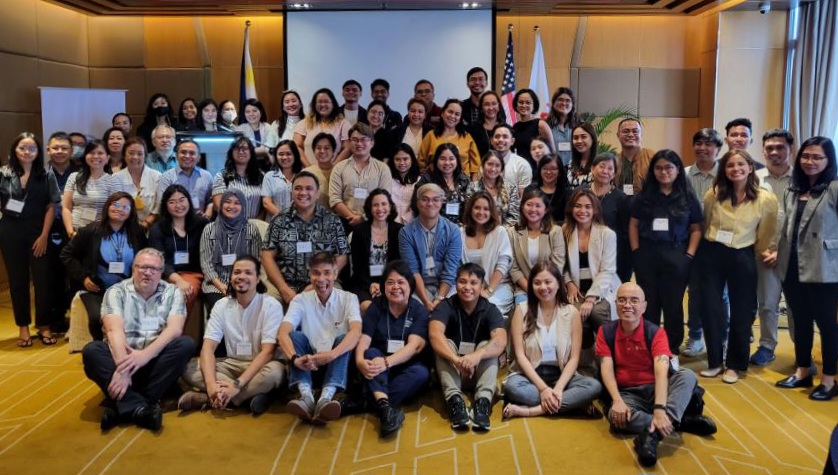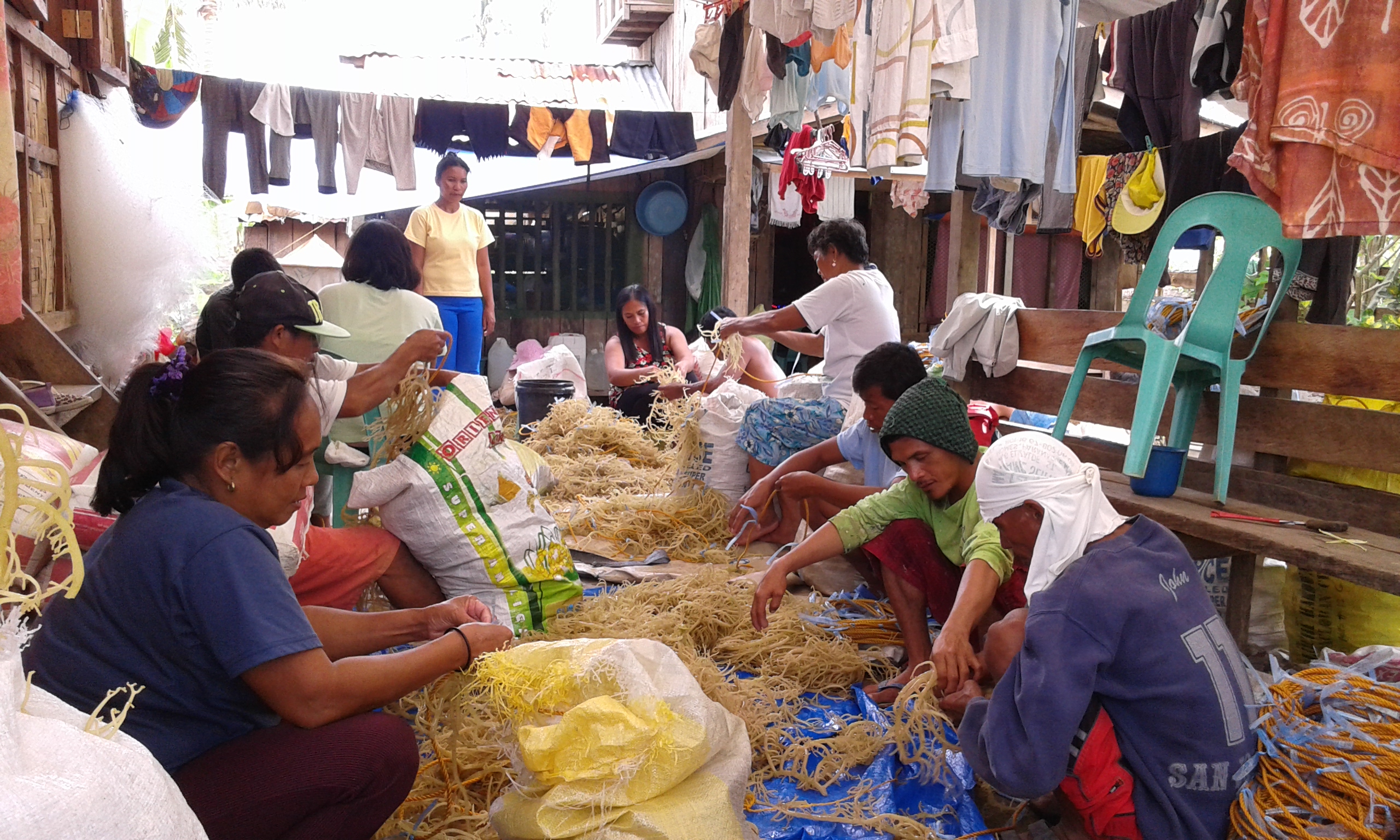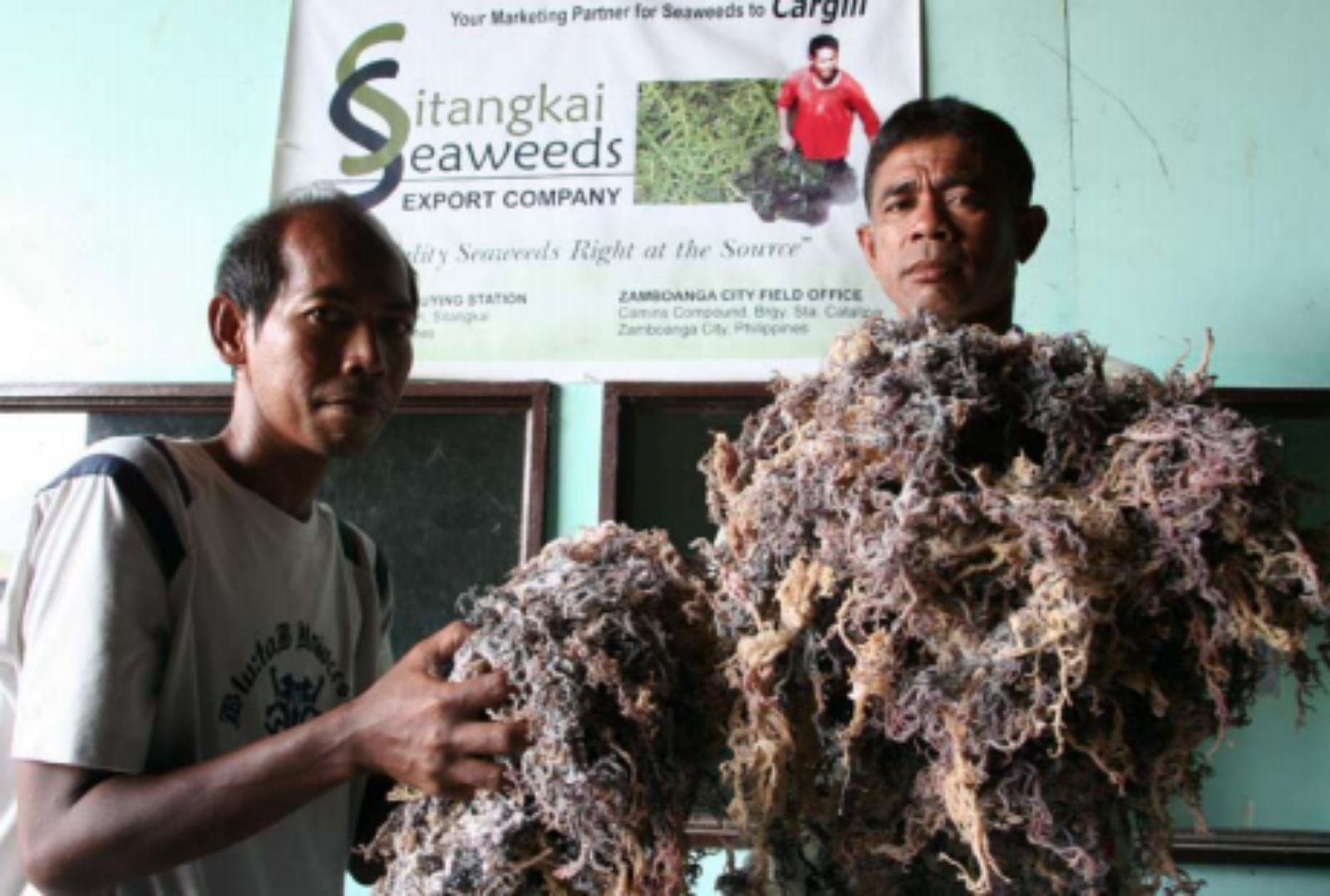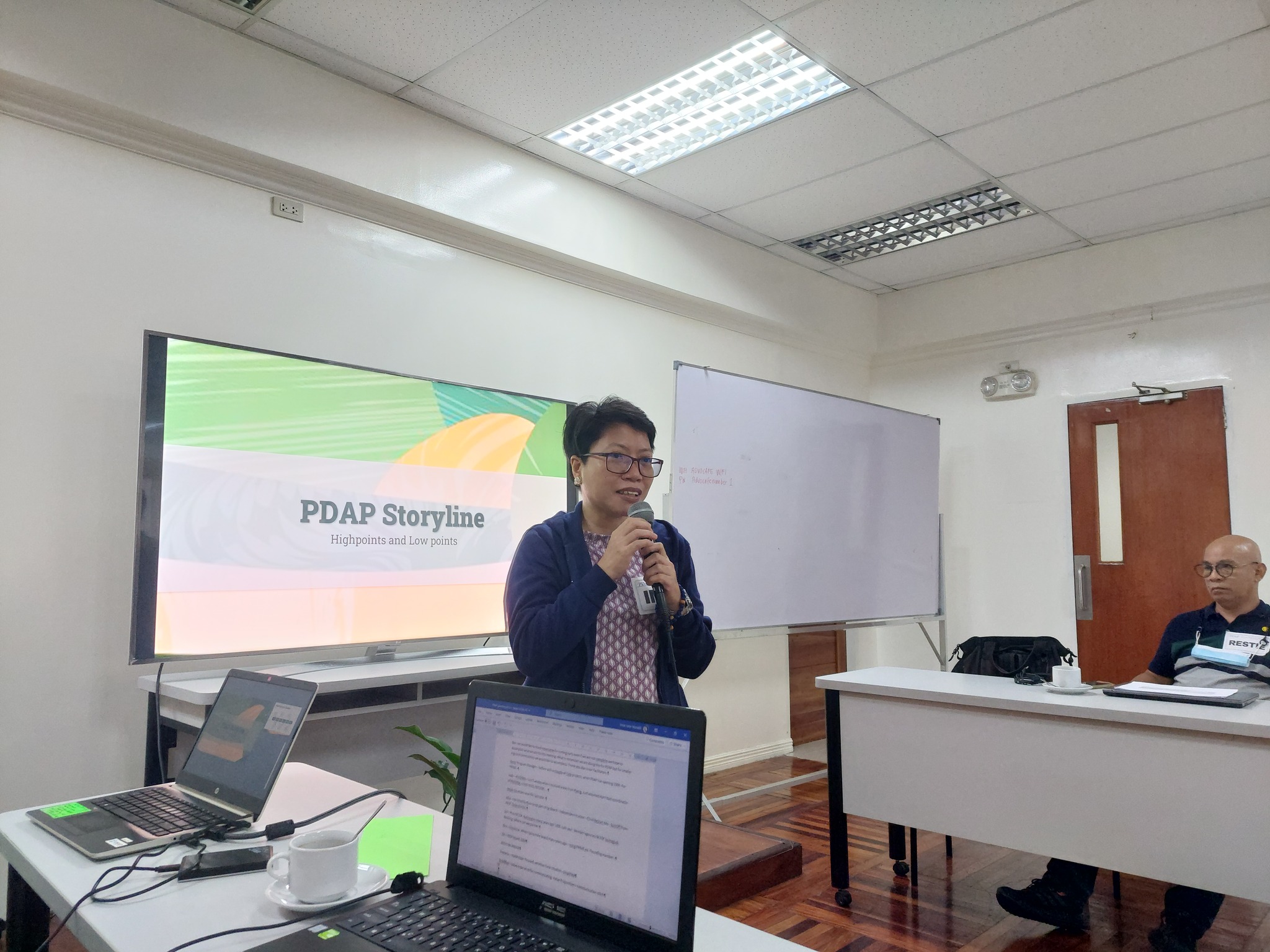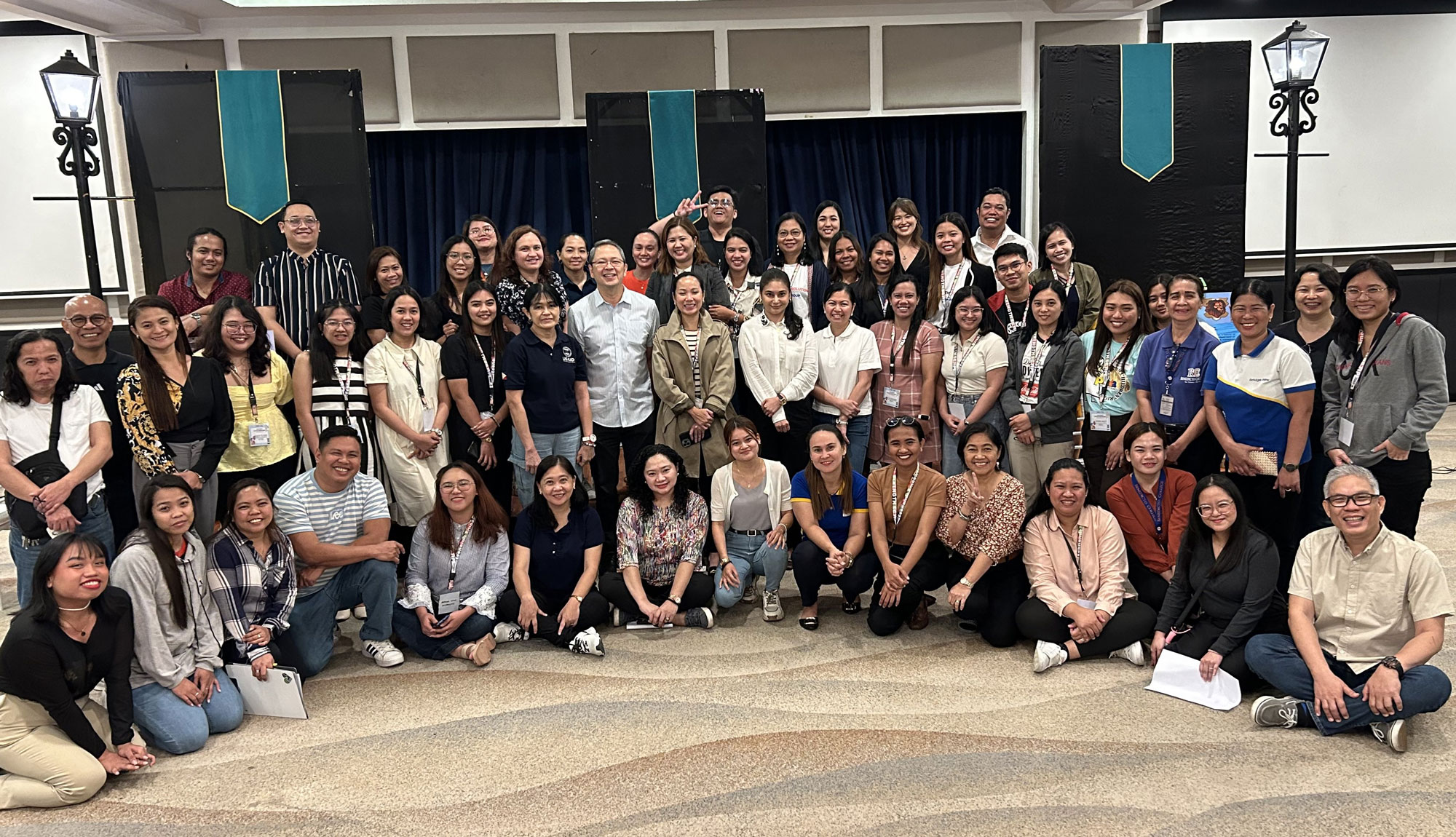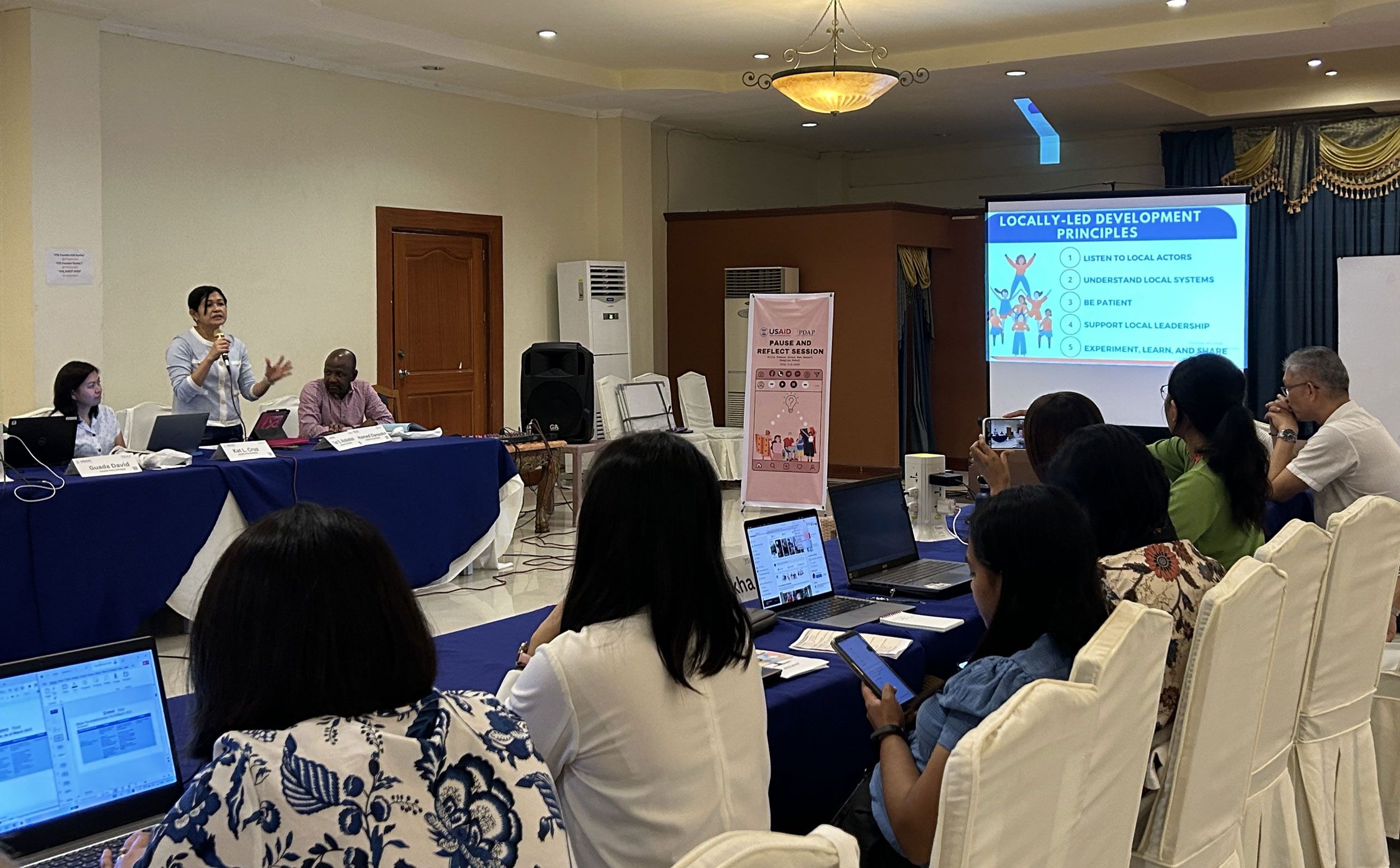ABOUT US
Background
The Partnership for Development Assistance in the Philippines Inc. (formerly known as Philippine Development Assistance Programme, Inc.) or PDAP started as a consortium of Filipino and Canadian non-government organizations (NGOs). PDAP is a non-stock, non-profit organization founded in 1986 and registered with the Securities and Exchange Commission on July 5, 1990. Its corporate purpose is to collaborate with and assist organized groups and disadvantaged Filipinos to develop into self-reliant communities. PDAP has six (6) member networks (i.e. Asian NGO Coalition for Agrarian Reform and Rural Development [ANGOC], Assisi Development Foundation, Inc. [ADFI], Association of Foundations [AF], National Council of Social Development [NCSD], Philippine Business for Social Progress [PBSP], and Philippine Partnership for the Development of Human Resources in Rural Areas [PhilDHRRA]) and its current thrust is the economic empowerment of rural households by enabling or capacitating collective rural social enterprises.
VISION AND MISSION
Vision
“Economically empowered collective rural social enterprises.”
Mission
“To contribute to the economic empowerment of rural households by enabling or capacitating collective rural social enterprises.”
HISTORICAL TIMELINE:
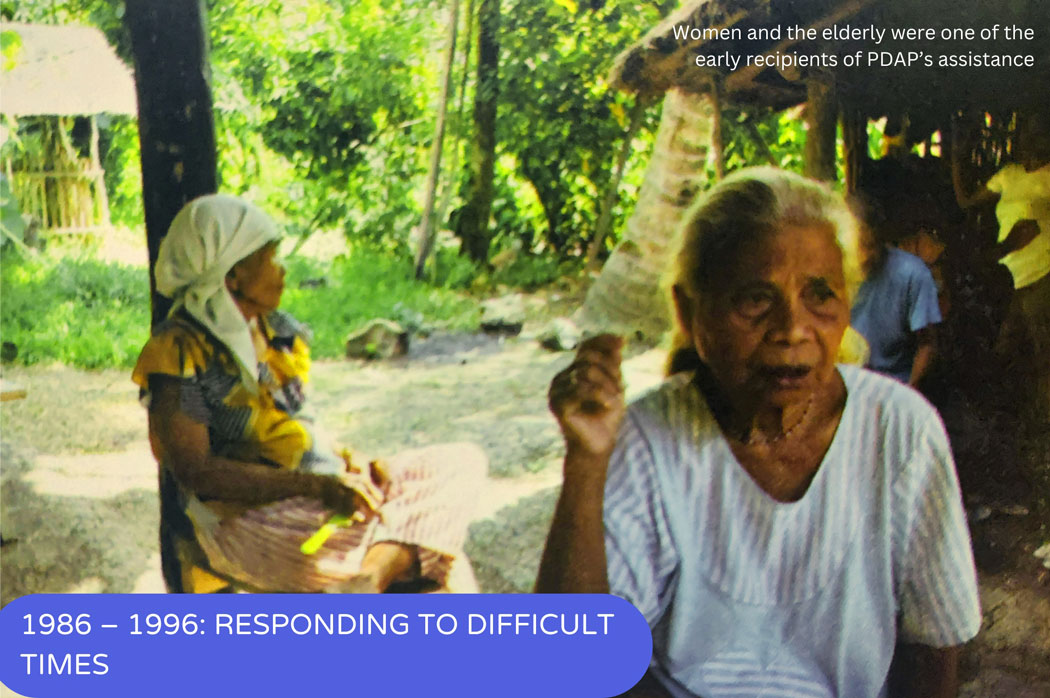
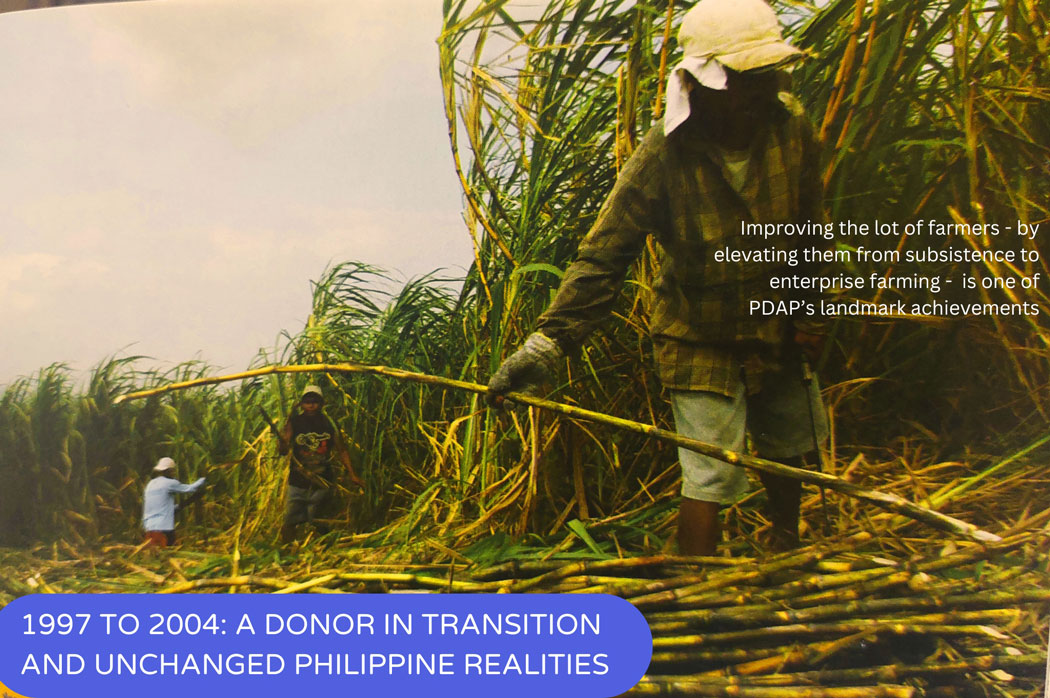
Partnership of Philippine and Canadian NGOs with funding support from the Canadian International Development Agency (CIDA)
Two phases of funding support from CIDA:
- Phase 1 (1986 to 1989) – Cdn$4.88M in support of community-based poverty alleviation projects
- Phase 2 (1989 to 1996) – Cdn$14.97M in support of the continuation of Phase 1 with a gradual shift towards a more programmatic approach focusing on agricultural development projects
§ Sustainable Agriculture Program (1994)
§ Central Loan Fund (1994 to 1997)
Increased role of Philippine NGOs, reduced role of Canadian NGOs; funding mainly from CIDA (DAR, FORD)
Promoting Participation in Sustainable Enterprises (PPSE) Program (1997 to 2004)
- Gradual shift from a “traditional mode” of providing assistance to partner NGOs and POs to a more focused development programming
- Focused on enterprise development, capacity building and policy advocacy
Other Projects:
- 1997 to 2004: Program for Peace and Development in the Southern Zone of Peace and Development (PPDSA)2000 to 2004: Mindanao Program for Peace and Development (ProPeace)
- 1999 to 2001: Agrarian Reform Infrastructure Support Program (ARISP)
- 2003: Relief and Rehabilitation Project in Damulog Bukidnon in response to Pikit War
- 2003 to 2004: Mapun Relief and Rehabilitation Project
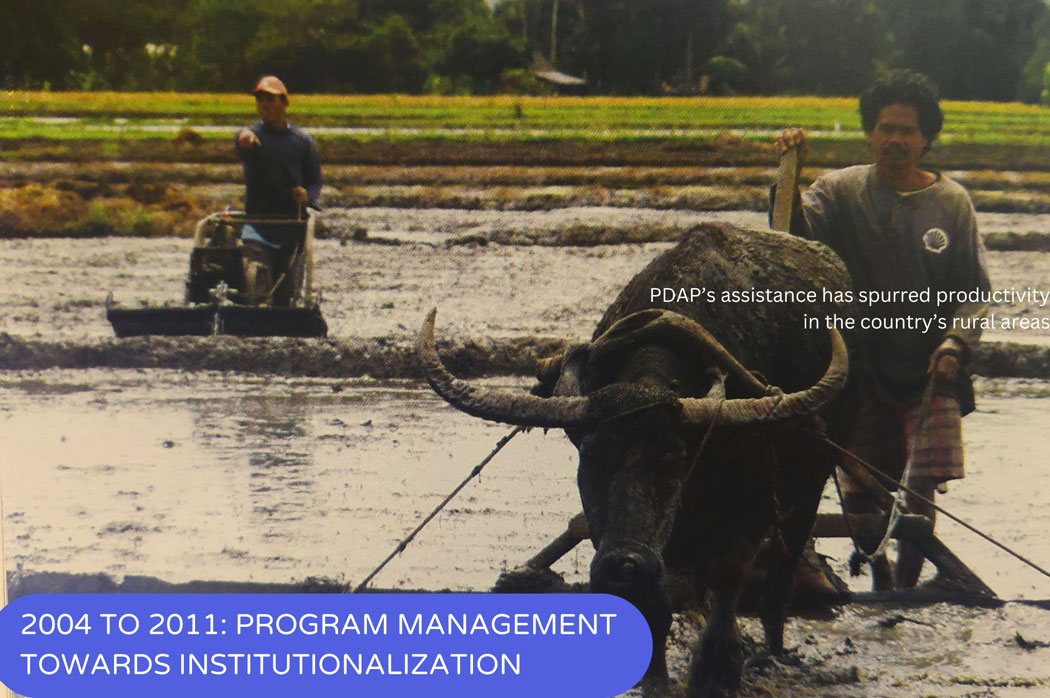
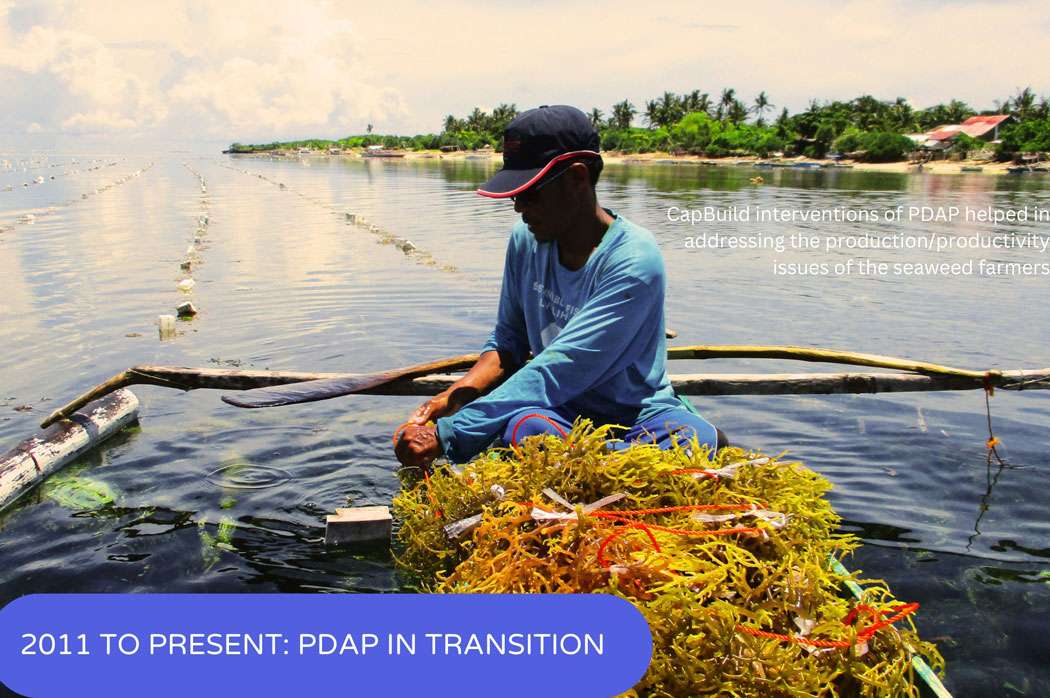
Incorporated PDAP Philippines; last funding support from CIDA
Promoting Rural Industries and Market Enhancement (PRIME) Program (2005 to 2011)
- CDN $4.8M grant from CIDA in support of developing the industry for specific commodities (i.e. organic rice, muscovado sugar and seaweeds)
- Industry approach (from agricultural production, post-harvest processing management and marketing)
Other Projects:
- Muscovado Industry Upscaling Project
- Building Unity and Integrating Local Efforts towards Democratic Development (BUILD) Project
- Sitangkai Seaweed Productivity Enhancement through Education and Extension (SP3E) Project
- Local Governance Support Program for Local Economic Development (LGSP-LED) – Organic Rice Chain Development Program
Institutionalization of PDAP; diversified funding sources (CODESPA, KNH, fee-based services)
PDAP changed its name to Partnership for Development Assistance in the Philippines Inc.
Projects:
- 2011 to 2012: Child-Focused Community Development (CFCD) Project
- 2011 to 2014: Seaweed Enterprise for Action Working for Empowerment and Economic Development (SEAWEED) Project
- 2014 to 2016: Present: Typhoon Yolanda Rehabilitation Projects in Western Samar
- 2016 to 2018: Various Capacity Building Interventions on Seaweed Farming Technology and Enterprise Development
- 2019 to Present: Strengthening Systems and Partnerships for More Effective and Sustainable Counter-trafficking in Persons (Strength CTIP) Project
Useful links
Contact us
Partnership for Development Assistance in the Philippines Inc. (PDAP)
Email: [email protected]; [email protected]
Copyright 2024 By PDAP

